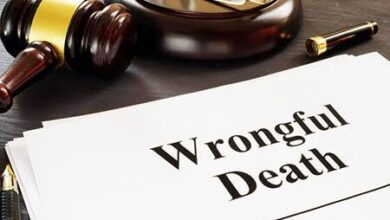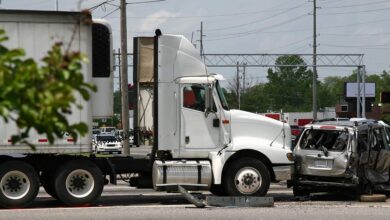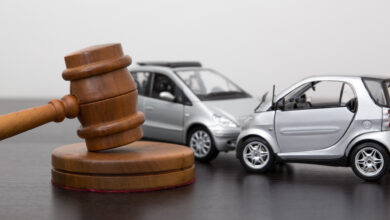Crucial Steps to Take After an Accident – A Guide From Expert Lawyers

The first step is to determine whether everyone is safe. Move your vehicle to a secure location on the shoulder, and turn on your hazard lights.
Remember to seek medical attention, even if you feel fine. Many injuries don’t show symptoms immediately, and adrenaline can mask the pain of certain damages.
Call the Police
A police officer will create an official accident report confirming important information about the crash. This prevents both parties from changing their accounts of what happened, which can have severe implications for an insurance claim.
When speaking to the police, remain calm and answer their questions objectively. Your emotions may affect the quality of your statements, so take some deep breaths or count to 10 if you need to get yourself under control. If you have any eyewitnesses, try to obtain their contact information and talk to them if it is safe.
Seek Medical Attention
Even if the crash seems minor, you should still seek medical attention. This will allow a doctor to rule out any significant injuries that may not be immediately apparent, such as internal bleeding, traumatic brain injury, and soft-tissue injuries.
It will also give you a record of your initial symptoms and prevent the insurance company from later trying to argue that your injuries did not appear until after the accident. For instance, if you have any tingling or numbness in your body, this could indicate a concussion.
If first responders are at the scene of your crash, let them check your condition and recommend whether you need to go to a hospital emergency room or a walk-in clinic.
Exchange Information
I am getting the other driver’s name, address, phone number, insurance company, and license plate information at the scene. This information will be needed to file an insurance claim or lawsuit later.
It is also important to exchange information with any witnesses. If witnesses have a camera, ask them to take photos of the vehicles from different angles and the scene as a whole.
Ensure to note the weather and road conditions, including skid marks or debris that may have contributed to the accident. Having this information at the accident scene can help prevent false statements and misinformation that could hurt your case.
Contact an Attorney
Your or the other driver’s insurance company will contact you to request a statement. It is best to not engage with them without the help of an attorney.
If it is safe to do so, take pictures of the scene and damage done to your vehicle. If witnesses were present, try to get their names and contact information.
Your lawyer or the skilled rear end accident lawyer will be able to communicate with the insurance companies on your behalf and protect you from tactics they use to downplay injuries or trick people into accepting lower settlements.
Document the Accident
Documentation at the scene can help determine fault later. For example, skid marks on the road or damage to both vehicles can help determine how the accident occurred. It is also essential to document witness statements, as these could help your case if a dispute arises.
Take pictures of all the vehicles involved in the accident and the surrounding area. Try to get multiple angles of each car to give the viewer a better idea of the extent of the damage. Using your phone is best as it is more difficult for others to tamper with digital photos.
Do Not Sign Anything from the At-Fault Insurance Company
Swapping insurance and contact information with other drivers can be tempting in the immediate aftermath of a crash. However, avoiding making promises about not filing an insurance claim or determining fault is essential.
Anything you say to the other driver or their insurance company can be used against you in court. Never admit any part of the accident was your fault at the scene or anywhere else.
Take pictures of the scene, including any vehicles and property damage. Also, try to talk with witnesses and ask for their names and contact information.
Keep a Record of All Medical Expenses and Lost Wages
Sometimes, it can be challenging to remember all of the essential details that come along with a car accident. This is why keeping all of your documents organized is so important.
Besides hospital bills, surgery costs, physical therapy, and prescription medications, you may also be missing out on income from missed work. Whether the at-fault driver’s insurance covers this or you must claim on your personal insurance policy through uninsured motorist coverage, documentation of lost wages is essential. This includes paychecks, wage verification letters from your employer, and correspondence confirming important employment details.



